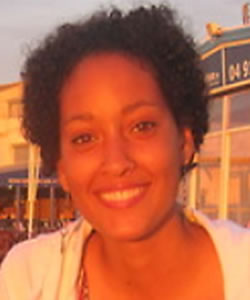The first night that I arrived in Strasbourg was a Saturday. Though this may not seem too significant, in France it'’s the day before Sunday, and Sundays tend to stand out amongst the days of the week. All of the shops close on Sundays, even the grocery stores. While this was a bit frustrating when my host first informed me of this, I have since learned to appreciate this French tradition that comes out of its Christian past. When my host talked about this, she went on to explain that shops owned by Jews or Muslims would be open, but were extremely expensive. Now she is a woman who is incredibly welcoming of new people, having welcomed students into her home from different parts of the world for over 20 years, but I couldn'’t help but hear the disgust in her tone as she described this. As the weeks progressed and I got to (and continue to get to) know Strasbourg, I have seen a few of the ways that religion does and doesn'’t play a role in daily life.
On one hand, I quickly found that the old Alsatian house that I am living in is right down the street from Strasbourg'’s synagogue, and therefore, in the middle of its Jewish neighborhood. Each week, I see hundreds of families in traditional outfits on their way to temple. The community seems strong, but not in a projecting way. Every time the bells of the cathedral toll in the morning and evenings, I’'m reminded of some of the good reasons for the Jewish community to search for a peaceful coexistence within a town that is right on the border with Germany. In the past, the bells signified when Jews were allowed into the city and the curfew time by which they needed to be out each night.
But religion isn'’t usually on the surface of French life. In fact, the value of separation between church and state is one that grounds much of the French logic of how society ought to behave. Plus, most Christians don't go to church on Sundays anymore, so the law about shops being closed on Sundays is kept not to respect the Christian Sabbath but because of the value placed on taking a break from work. I thought about this separation a lot when I heard from two friends about similar experiences in the United States and in France.
A friend from high school studying in the United States decided this past summer that college was not for her and was motivated to find a job in a farming community. The community in North Carolina that she found is away from cities and brings together followers of the Twelve Tribes religion, who were searching for an alternate way of life that is in accordance with their religion. My friend first thought that she would need to grit her teeth at all of the ‘religious stuff’ in order to appreciate living on the farm. At the end of her months there, I briefly spoke with her and her conclusion was that, "Communities like that couldn’'t exist without religion. Religion was the ‘glue that holds it all together." I had some trouble swallowing this but wanted to hear more of her reflections before making a judgment.
I waited to hear from another friend to sort out my thoughts on the subject. I quickly found that by moving over the ocean to France, that conclusion is completely void. Another friend here in Strasbourg told me very recently about his decision to abandon his studies to live on a farm in the southwest of France. The idea of the farm is to be a self-sufficient community led by an ideology opposed to hierarchy between people and firm on self-guided understanding of personal responsibility. A group of people living together without the need for a state to provide the blueprint for the social contract, marked by positive rights, but also by negative rights. A community striving for progress in the absence of a leviathan. I found this incredibly interesting and asked him what he thought of my American friend’'s belief in religion as the basis of alternative communities. He was shocked.
To me, his reaction is incredibly telling of the place that religion occupies within French society: religion is more part of this country'’s factual history than core culture. My American friend might be entirely correct, and religion might be needed on American farming communities. However, perhaps that isn'’t because of the religion itself. Maybe it is just that American reactions to religion are much more positive and motivated. Here in France, secularism is much more normal within political ideologies and societal organization. To take this further, I then asked myself about the place of religion as a consequence of this line of thinking. Does religion just facilitate the goals of peaceful and positive cohabitation on the farm, or is it the end goal? It would seem that global cultural and religious diversity might point to religion being nothing more than the vehicle, though one that is so powerful that it is able to confuse whether it the way to the raison d’'être, or the raison d'être itself.

